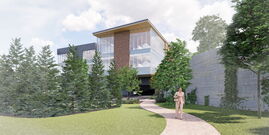Processing Your Payment
Please do not leave this page until complete. This can take a few moments.
- News
-
Editions
-
- Lists
-
Viewpoints
-
Our Events
-
Event Info
- Women's Leadership Forum 2025
- On the Road with Mainebiz in Bethel
- Health Care Forum 2025
- On The Road with Mainebiz in Greenville
- On The Road with Mainebiz in Waterville
- Small Business Forum 2025
- Outstanding Women in Business Reception 2025
- On The Road with Mainebiz in Bath
- 60 Ideas in 60 Minutes Portland 2025
- 40 Under 40 Awards Reception 2025
- On The Road with Mainebiz in Lewiston / Auburn
- 60 Ideas in 60 Minutes Bangor 2025
Award Honorees
- 2025 Business Leaders of the Year
- 2024 Women to Watch Honorees
- 2024 Business Leaders of the Year
- 2023 NextUp: 40 Under 40 Honorees
- 2023 Women to Watch Honorees
- 2023 Business Leaders of the Year
- 2022 NextUp: 40 Under 40 Honorees
- 2022 Women to Watch Honorees
- 2022 Business Leaders of the Year
-
-
Calendar
-
Biz Marketplace
- News
-
Editions
View Digital Editions
Biweekly Issues
- April 21, 2025 Edition
- April 7, 2025
- March 24, 2025
- March 10, 2025
- Feb. 24, 2025
- Feb. 10, 2025
- + More
Special Editions
- Lists
- Viewpoints
-
Our Events
Event Info
- View all Events
- Women's Leadership Forum 2025
- On the Road with Mainebiz in Bethel
- Health Care Forum 2025
- On The Road with Mainebiz in Greenville
- On The Road with Mainebiz in Waterville
- + More
Award Honorees
- 2025 Business Leaders of the Year
- 2024 Women to Watch Honorees
- 2024 Business Leaders of the Year
- 2023 NextUp: 40 Under 40 Honorees
- 2023 Women to Watch Honorees
- 2023 Business Leaders of the Year
- + More
- 2022 NextUp: 40 Under 40 Honorees
- 2022 Women to Watch Honorees
- 2022 Business Leaders of the Year
- Nomination Forms
- Calendar
- Biz Marketplace
On the Record: For SMRT’s new leader, ‘the sky’s the limit’ at Maine’s biggest architecture firm
 Photo / Jim Neuger
Bradley Hodges, who succeeded Ellen Belknap as president of SMRT Architects and Engineers at the start of 2024, has been with the Portland-based firm for more than two decades.
Photo / Jim Neuger
Bradley Hodges, who succeeded Ellen Belknap as president of SMRT Architects and Engineers at the start of 2024, has been with the Portland-based firm for more than two decades.
Bradley Hodges, a native of Dixfield in Oxford County, succeeded Ellen Belknap as president of SMRT Architects and Engineers at the start of 2024. To find out more, Mainebiz sat down with Hodges in the Portland headquarters of Maine’s largest architectural firm, which also has offices in Bangor; Schenectady, N.Y.; and Andover, Mass.
Mainebiz: What sparked your interest in architecture?
Bradley Hodges: I’ve always been interested in creating things and designing. Art and math and sciences were always a big part of what kept me engaged and interested as a child. My mother was very artistic, and my father worked in engineering, so I loved math and loved art and said, ‘I should be an architect.’ So, I went to school for a couple of years in New Hampshire and got an associate degree, then transferred down to Wentworth Institute of Technology [in Boston], where I got my bachelor’s in architectural engineering.
Then I did a co-op or two with an architect, did a few more with engineers and ended up on the engineering side of house. Later when I worked in an environment where architects and engineers were under the same roof, it was like the sky parted — having everybody in one place was amazing.
After about 10 years in Boston, I found an opportunity to join SMRT in 2001 in Portland, and it’s been great. I love working with colleagues for clients trying to find creative solutions to whatever they’re faced with in their businesses.
MB: For many years you led SMRT’s science, technology and manufacturing practice. What drew you to that niche?
BH: Science, technology and manufacturing has always been a passion of mine. It started years ago when there were a lot more semiconductor manufacturing facilities and companies based in the U.S, a lot of those have been offshored from the ’90s forward. We’re hopeful, with the federal CHIPS and Science Act recently passed, that we’re going to see more of the electronic supply chain be reshored.
That means jobs for U.S.-based manufacturers, so we’re excited about that. Just the challenges of those facilities and the complexity of those facilities was always fascinating to me. There are a lot of moving parts, and many of the projects you need to design are like designing a Swiss watch, so it’s very rewarding.
MB: What are some projects in this area you’ve done in Maine?
BH: In the diagnostics arena, for Maine Molecular Quality Controls in Saco we did the main buildout as well as additions including an office addition just completed. We’ve also just wrapped up a project for LGC Maine Standards Co. in Cumberland — a small addition, that reworked and improved the workflow in their facility. They have a piece of property adjacent to where their building is located, and we helped them facilitate a solar field that was put on that campus.
MB: How would you describe your approach to leadership?
BH: For me, it’s about keeping the big picture in focus all the time. Listening and processing are also important. I like to listen to a lot of inputs, but then when it’s time to act, to act decisively and move forward. Once you’re committed to something, jump in with both feet — that’s something I’ve tried to do over the years.
MB: What’s next for SMRT?
BH: I think the sky’s the limit. We have the good fortune of being able to deliver some signature projects in recent years — for clients including L.L.Bean, Aroma Joe’s and Hannaford — that we are hoping will lead to the next signature project. We’re positioned better than we’ve ever been, with a tremendous backlog of multiyear opportunities and projects that we’ve already secured and are waiting to get started.
We’re also looking to see where A.I. takes us in terms of data-driven design and also have a commitment to the environment. The design community is uniquely positioned to be able to play a leadership role in sustainability and in resilience-based design.
Mainebiz web partners
Related Content
Congratulations, Brad Hodges. So happy for your success.














1 Comments